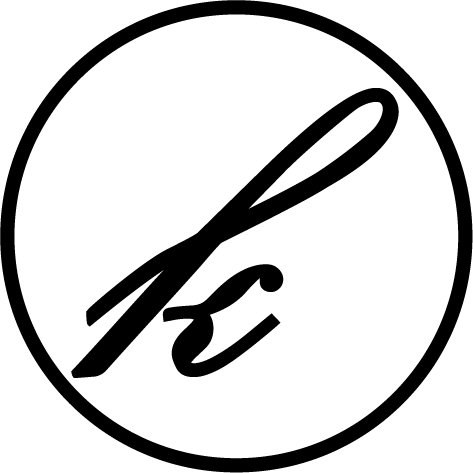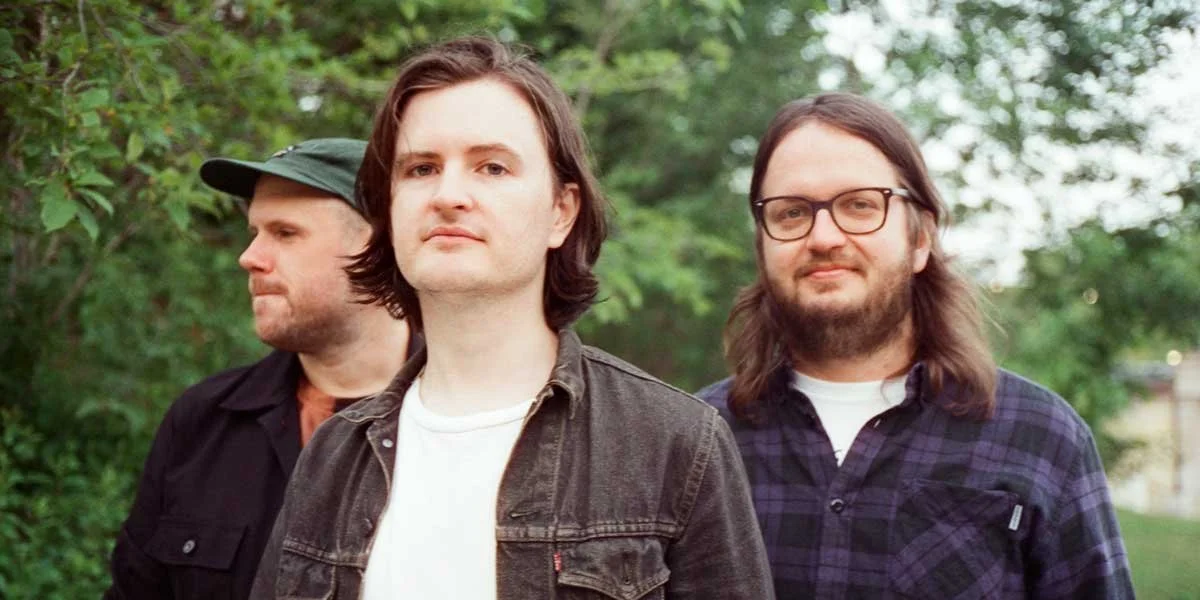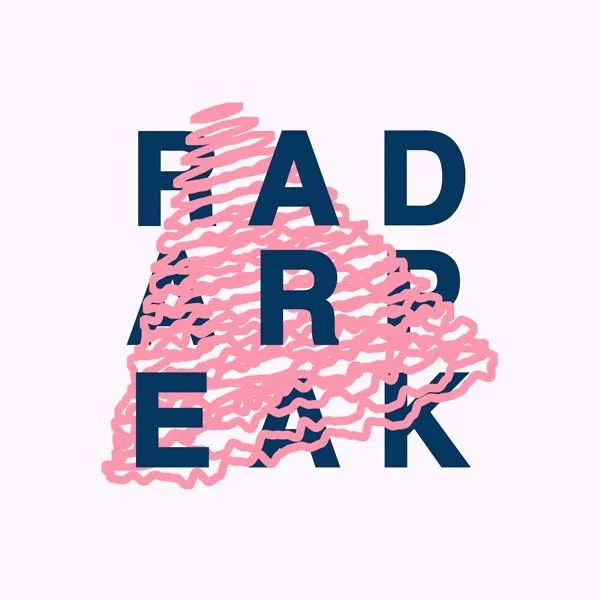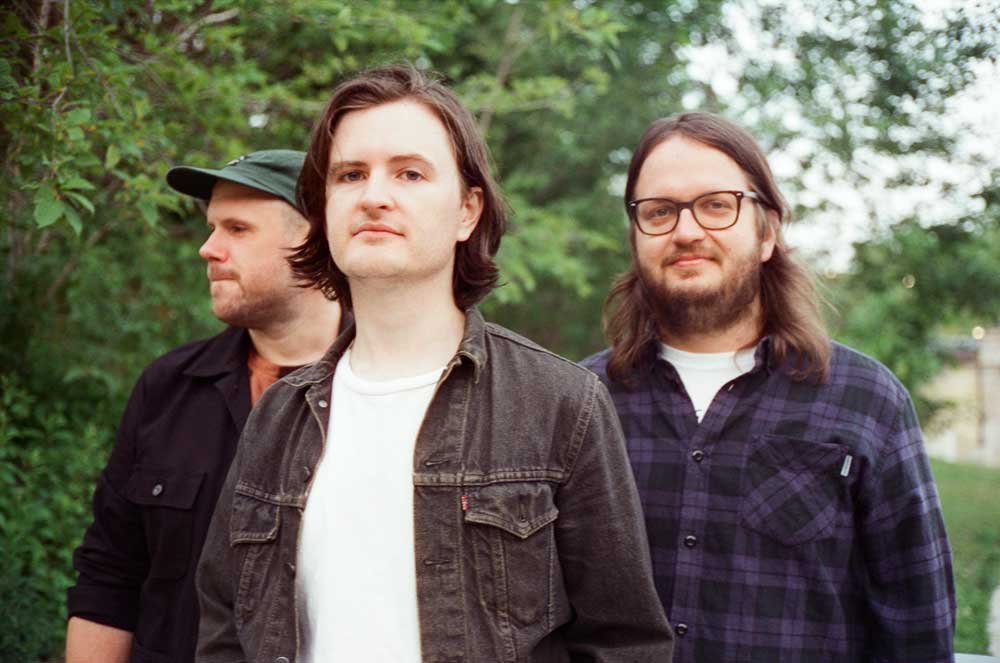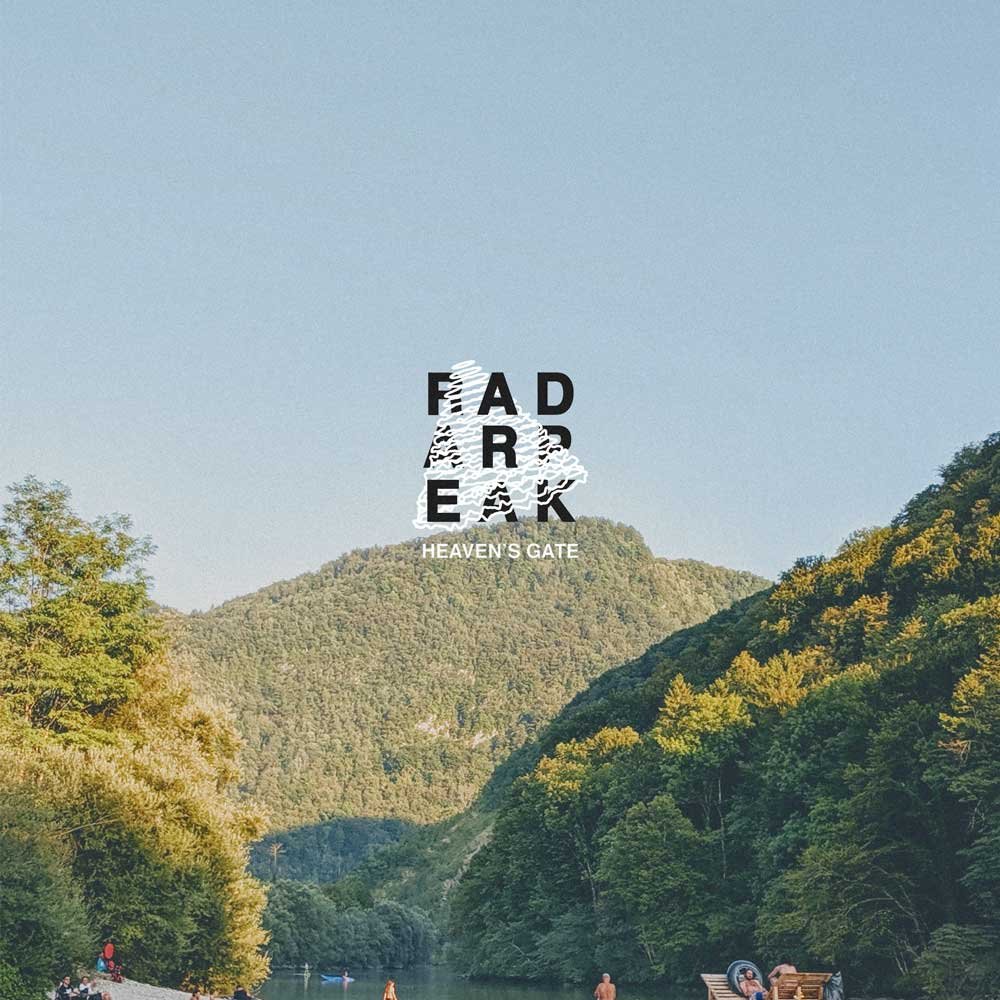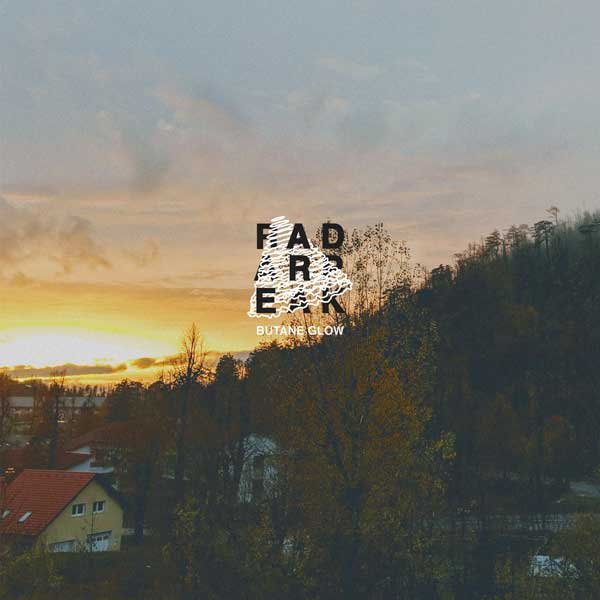RADAR PEAK - SELF-TITLED
RELEASE DATE : OCTOBER 20, 2023
On certain nights, there is a garage. It’s not clear where it comes from, or how it happens to now be halfway down your block, in a place where there was no garage the night before. It doesn’t take the place of something else — nothing is missing — but it seems to have unfolded into the spaces between buildings that belong to cats and trash cans, where frisbees and supersoakers become “lost” even though you know where they are. But inside of this garage, nothing is lost.
It was on the edge of Berzelii Park in Stockholm in 1904 — Hilma af Klint was cutting through the park after locking up her studio when the spirit Ananda told her that she needed to make her “astral paintings.”
It was near the end of Mercer Street in Princeton, New Jersey in 1955 — Albert Einstein had spent the night in the garage before writing: “the separation between past, present and future has only the importance of an admittedly tenacious illusion.”
It was in a laneway in a suburb of Manchester in 1973 — it was where 10cc’s Eric Stewart and Graham Gouldman waited to hand off keys to their studio to Paul McCartney, and where they started talking about Howard Hughes and the Getty family.
It was just off First Street in St. Louis’s Columbus Square in 1994 — Jeff Tweedy was between shows when a friend asked him what he really wanted to play, and he remembered the old A.M. radio that he’d seen atop a stack of milk crates in the garage.
No one knows where or how John C. Lilly stumbled across the garage, but it regrets his having done so.
And it was in the West End of Toronto in 2016, when high school friends Matt Aldred, Zack Mykula and Nestor Chumak were coming home after a party and started talking about their old band and the friends they hadn’t seen since becoming touring musicians.
That band, the Vibrosonics, had been a space to pursue ambitious compositions, with each member pushing the others to become more technically proficient and to surprise the others with heterodox progressions and harmonies. They pushed each other to grow quickly as musicians, but they also grew apart as collaborators, and the Vibrosonics disbanded in 2006. Shortly after, Aldred formed the Toronto rock group Modern Superstitions (Last Gang) with NYSSA, collaborating with Brian Borcherdt (Holy Fuck), Ben Cook (Fucked Up), Patrick Pentland (Sloan) and John Critchley on the band’s production — he has since become a sought-after collaborator and session player. Chumak & Mykula pursued individual projects before reconvening in 2013 to form the band PUP (Royal Mountain / SideOneDummy), who have released four records to widespread critical acclaim, including a Juno Award in the alternative music category for “Morbid Stuff” (2019) and Polaris nominations for all four.
In 2016, Aldred was home from a global tour in Michael Rault’s band, opening for Chicago’s Whitney and Australia’s King Gizzard & The Lizard Wizard, while Chumak and Mykula were recovering from playing over 100 shows across North America, Europe and Australia with Modern Baseball, Jeff Rosenstock, Charly Bliss and others. But as the house party in their old neighbourhood died down, they found themselves talking — not about the new places they’d seen and exciting people they’d met, but about what they’d missed, including playing with each other.
“When we first started, we were just kids — green as can be,” Aldred reflects. “It wasn't until after we'd split up that we learned how to make the music we loved.”
They were talking about XTC, Teenage Fanclub, Phantogram, Elvis Costello, Feist and the Pretenders, but also, about the lives they were watching unfold at a distance. About the friends to whom they’d been meaning to apologize but without any sense of when they might have a chance, or who they were still mad at without being able to fully explain why — about the new relationships that they’d seen appear on old lovers’ Instagrams, and about how hard it is to ask how it’s really going over DM. Soon, they found themselves walking down an alley behind the south side of Bloor. They were headed to their old rehearsal space behind Chumak’s parents’ house, but they walked into the garage.
They didn’t notice right away. The broken couch and the N64 and the instruments and amps were where they always were between tours. But the corners were deeper and darker, with more boxes behind the familiar ones. During the first slice of cheese pizza, they were talking about how it felt to live a life through social media after having grown up without the internet, when they heard it: “Nothing is ever really lost. It just waits.”
It was a voice familiar enough that each assumed that one of the others had said it, and they went back to talking, and then, to playing. Talking about their bands, and about how parts that they’d written recently had started as ideas they had first had together, and then playing through ideas that Aldred had had but wasn’t sure where they belonged or if the moment to do something with them had passed. And again: “Nothing is ever really lost. It just waits.”
The idea was such a relief that they did not initially pursue its source. They realized that the Internet’s velocity could be attenuated — that the same vehicle for constant, partial connection offered the chance to experiment like they had in high school. Only, instead of an endless afternoon’s jam, they could record and stack changes and flourishes without worrying about deadlines or check-out times or how to fit everyone on stage. That the sounds and sensibilities of Nick Lowe and Spoon and Big Star and the Breeders could coexist if you gave them the chance to get to know one another and a place where problems like time and history have the opportunity to figure themselves out.
For the next four years, they sent each other ideas, giving themselves permission to explore and to develop the kinds of deep textures that their other commitments would never allow. “None of us had ever steadily built songs from the ground up, one by one, in order to create a whole, cohesive record,” Mykula says. “We were able to discover new directions, but were sometimes paralyzed by options and potential. Thankfully, we were able to rely on Marcel Ramagnano to ‘edit’ the madness into something palatable.”
That madness became a kind of power pop that reflects both the yearning and the humour of a self-aware person living a modern, dislocated life. And in the deeper, darker boxes in the garage were the kinds of stories that this madness deserved: of a late-night Kafka dependent on free WiFi and Farfisa to feel whole, of a sniper’s target who realizes that that deadly attention is a form of love, of living a life so cautious and sensible the world passes you by entirely, of a musician who has been on tour so long that his body has lost its sense of home and his soul has become restless for a trial separation. Each song feels exuberant yet meticulously written, simultaneously fresh and remembered. When it came time to name the project, they were drawn to the grieving physicist in Liu Cixin’s The Three-Body Problem, who sends the message that seals humanity’s fate from her lab atop the Radar Peak to which she has been banished.
When pressed, Aldred, Mykula and Chumak are coy about how they find their way back to the garage. Or maybe it would be more accurate to say, about how it finds them.
Some say that, like time itself, it flies.
RADAR PEAK TRACKLIST
01 Heaven’s Gate
02 Butane Glow
03 Sniper’s Muse
04 Counterfeit
05 Stepping Stone
06 Longtime Caller
07 Girl On Bike
08 Index Of Tears
09 Maggie & Pete
